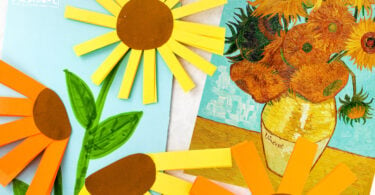

Geometric activity shape shapes math popsicle stem building stick idea Fractions In First Grade | Geometry 2nd Grade Activities, 2nd Grade fractions fraction activities grade teaching geometry 2nd comparing DIY Math Games Ideas To Teach Your Kids In An Easy And Fun Way Read more: Easy Sensory Activity For Kids: Make An X-Ray Light Box! - The Measured Mom ray light box sensory activity easy body activities human play letter table measured preschool lightbox xray simple science mom project Water Sensory Science Activities For Kids Early Learning Play Ībsorption littlebinsforlittlehands organic icy excavation άρθρο Soldier Craft remembrance daycare Human Body Activities - The Measured Mom themeasuredmom measured skeletal Geometric Shapes Activity Math And STEM Ideas For Kids Getting your preschooler involved in math in their preschool years can help set them up for a bright future.Ĭontact us to learn more fun games to boost your preschooler’s math skills.Easy Sensory Activity for Kids: Make an X-Ray Light Box! - The Measured Mom we have 9 Pics about Easy Sensory Activity for Kids: Make an X-Ray Light Box! - The Measured Mom like Learn to write and memorize letters with this simple and fun preschool, 10 beautiful homemade fall wreath art projects - NurtureStore and also 10 beautiful homemade fall wreath art projects - NurtureStore. Identify shapes of street signs, count how many grapes they have for lunch, or find patterns on their favorite shirt.

Get creative and help your little one see that math is everywhere. Young children can easily grasp math concepts when you incorporate these math games into their everyday life. You can even separate the colors and count how many of each color you have. 5) Building and Counting BlocksĪll preschoolers like to stack and build with blocks so why not use it as a way to teach preschool math skills? Anytime your little one wants to play with blocks, turn it into a counting game.
Simple math for preschoolers pro#
Pro Tip: Combine the outdoors with fun counting games to make your child more likely to enjoy learning math. This allows your child to learn to count in two ways: counting the dots on the dice and also counting the nature items, too.

If they roll a two and the twig card, they will remove two twigs from the nature container. To play, have your child roll the dice and pick a card. Then, make and cut out pictures of the items you found, like small rocks, acorns, leaves, flower petals, twigs, or whatever else you came across. Nature counting is the perfect way to help your little one learn preschool math skills, and, it gets them outside, too! Head outside and start collecting thing in your yard or area. The first one to fill their cup wins! 4) Nature Counting Take turns rolling the dice and whatever number they roll, put that many objects into the cup. This is a fun game that everyone will enjoy and helps them practice counting, too! To play, you need objects for counting (legos, blocks, or anything else that is small enough to fit in a cup), a cup, and a dice.

Then, use the glitter glue to add the same number of dots to the other side of the stick. With the marker, write a number on one end of the stick. Grab some popsicle sticks, some glitter glue and a marker. Making counting sticks not only helps your preschooler learn math skills, but this easy activity gets your kiddo busy crafting, too. Once they sort their items, they can count how many are in each group! For extra fun, sort jelly beans or other edible items and let them eat them up at the end. Sort it all out! Sort colors, shapes, sizes, or whatever else you can think of! Sorting is a great way to help teach math skills. To get you started, here are five fun ways to boost their math skills that your preschooler is sure to love: Math is all around us and everything can be turned into a fun math game with a little creativity. Teaching preschoolers math should not be about getting them to memorize things or drilling them with facts. Click To Tweet Making Math Fun for Preschoolers Here are 5 fun math games to play with your child right now. Learning math doesn't have to wait for a classroom. When you teach preschoolers math, children are able to develop a sense of math in everything around them and are better able to communicate, too. Children ages three to five can easily (and most of the time willingly) develop a basic understanding of numbers and counting. Studies have found that the earlier you start your little one learning math, the better.


 0 kommentar(er)
0 kommentar(er)
